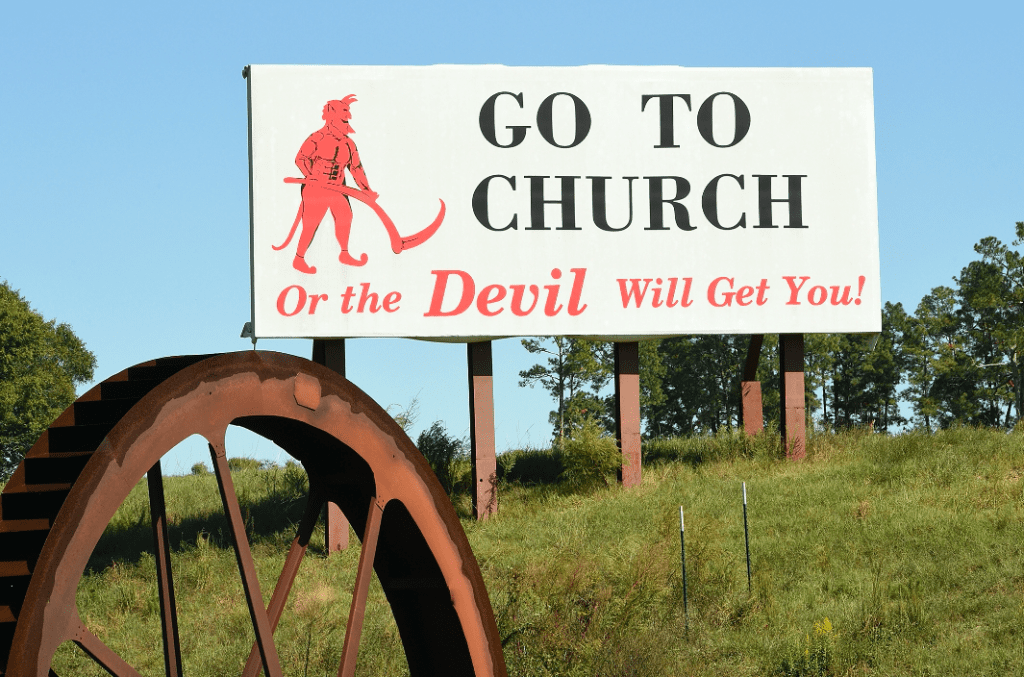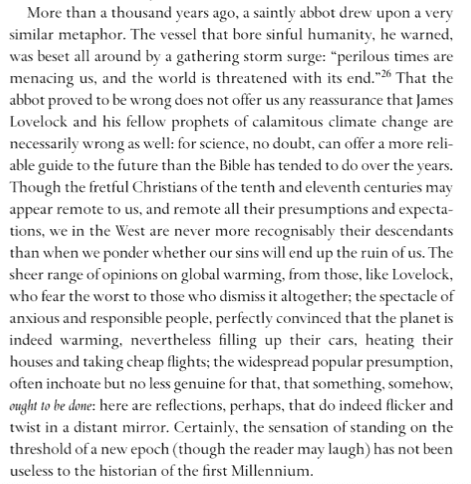Tom Holland In Alabama

Hello from Nashville. That was a long drive up from Baton Rouge yesterday. I did it in part because I’m still not quite comfortable flying in the Covid era, and in part because road trips are the only time I have to listen to podcasts and audiobooks. The last roadtrip I made, to Birmingham earlier this fall, was immensely enjoyable on the road because my companion was historian Tom Holland, whose Dominion I listened to. It wasn’t his voice, but it was his words — and oh, nobody can write narrative history like that guy.
I had planned to listen to his Rubicon, about the rise and fall of the Roman Republic, but it turned out that you couldn’t get it with the Audible credits I have. You could get his Dynasty, which is about the Caesars, making it a sequel to Rubicon — but I felt weird about getting the chronology wrong. Happily, Audible allowed me to acquire Holland’s book Millennium — I think that’s the British title; here it’s The Forge of Christendom. It’s about how events in Europe around the year 1000 shaped the West. Well, I have been absolutely loving the Sigrid Undset novel Kristin Lavransdatter (the Tiina Nunnally translation), set in 14th century Norway, so I was pleased to spend more time in the Middle Ages, led by Tom.
I have to tell you that I laughed out loud as I motored through rural Alabama, listening to the book’s narrator discussing how preoccupied people of that era were with the Apocalypse, which they believed was about to be upon them, as I passed a large billboard that said: JESUS IS COMING SOON.
Plus ça change, as they say in Tuscaloosa.
Seriously, though, it’s fascinating to think that Alabama is a thousand years and an ocean away from Europe at the first millennium, but people there — and in many parts of America — are still very much thinking and talking about the Second Coming of Christ. Here’s a passage from the book’s introduction in which Holland reflects on how people around the dawn of the third millennium are also worrying about the end of the world, e.g., scientists and climate catastrophe:

Holland says that when the Antichrist didn’t appear, and Jesus did not return, Europeans had to get on with their lives. I think about the French novelist Michel Houellebecq’s prophesy about the post-Covid world: “We will not wake up after the lockdown in a new world. It will be the same, just a bit worse.”
Is it more depressing to think that we will face a world-changing cataclysm, or that we will just muddle through dully, just a bit worse?
The Dark Ages Europe Holland tells of in the first part of the book sounds like a pretty grim place, though quite interesting to me. We all know about the morally corrupt Renaissance popes, but let me tell you, some of the Dark Ages pontiffs were no slouches. John XII died at age 27 of a stroke brought on by his exertions in the bed of his married lover. You see a fair amount these days angry Catholics saying that the Catholic Church has never been as bad off as it is today. Um, no, that’s not true.
It’s interesting to reflect, via this book, how much our sense of meaning at any given moment is constructed from our fears and desires. A banal point, perhaps, but when I listened to Holland (or rather, the voice actor) talking about how so many of the wisest men of the end of the first millennium were certain, thanks to prophecies and calculations, that the End was upon them, it’s a reminder of how contingent our knowledge of the future is.
You might think that’s good news, because those who prophecy doom might be wrong. Well, hold on. In the time period that Holland writes about, Byzantium still dwelled in all her splendor and might, and didn’t much worry about the barbarian kings that ruled the lands of the former Roman empire in the West. The empires of the Saracens were places of wealth, culture, and learning — especially al-Andalus, Muslim Spain. Holland says that Caliph Al-Hakam II’s library in Cordoba might have contained as many as 400,000 books. Only a tiny fraction of that number of books existed in all of western Europe at the time. Barbarians didn’t much care for reading.
We know, though, that despite their relative backwardness, things would begin to change soon for the West. And despite their power and glory, both Byzantium and the Muslim world would decline from their height. But nobody in Constantinople or Cordoba knew it then. It was all about to slip from their grasp.
Holland wrote this book over a decade ago, yet I would say that his judgment that we are standing on the edge of a new epoch is still sound. Nobody quite knows what it is going to be yet. But things are moving. I saw yesterday that Kamala Harris said that the US, in the new administration, is going to involve itself in Syria again, on the side of “pro-democracy” forces. As a dog goes back to its vomit, so does a declining imperial power … you know how that goes. We may end up nostalgic for decadent Donald Trump after all.
Hey, if you’d like to sign up to listen to the live chat of the Q Ideas virtual town hall today and tomorrow in Nashville, click here to learn how. It has just started (though I’m not yet in the room — I slept late after that drive); my interview will be later this afternoon. But it’s all being recorded, and if you sign up, you have access to those sessions saved digitally.
Subscribe for as little as $5/mo to start commenting on Rod’s blog.